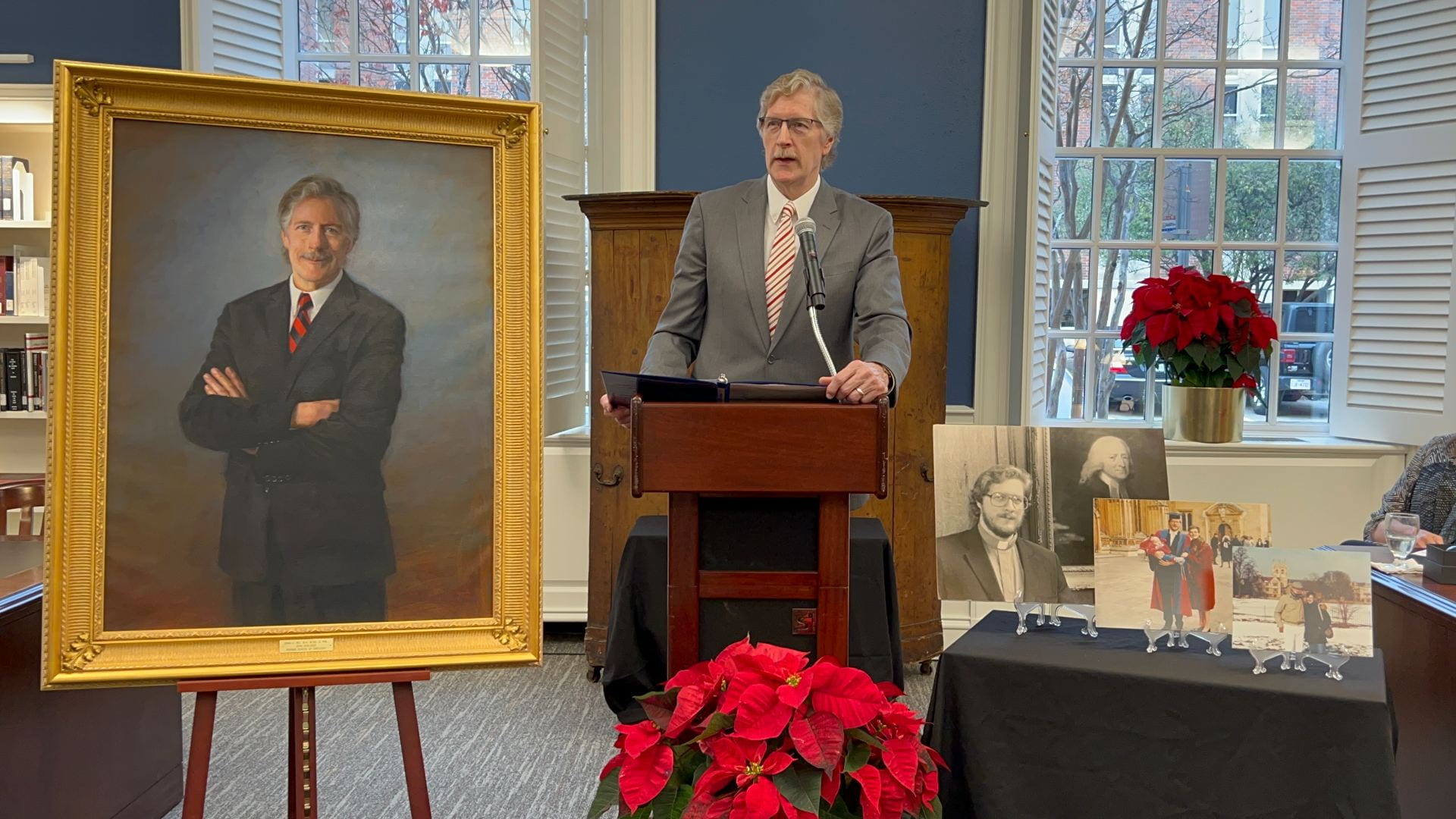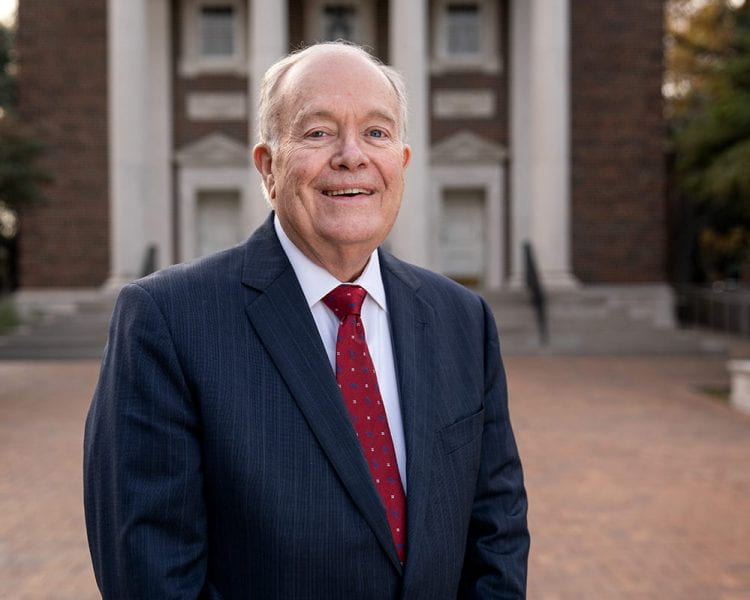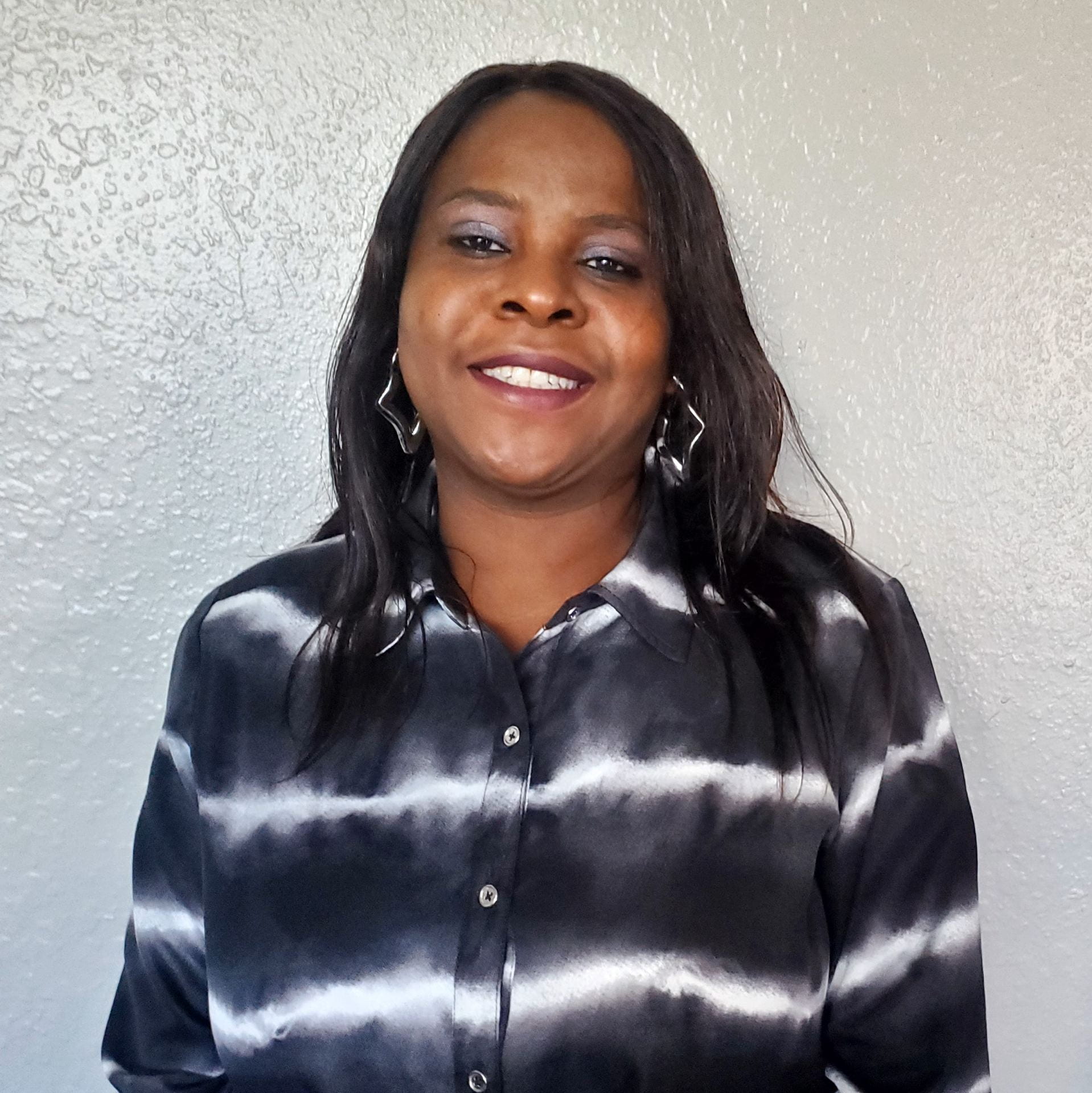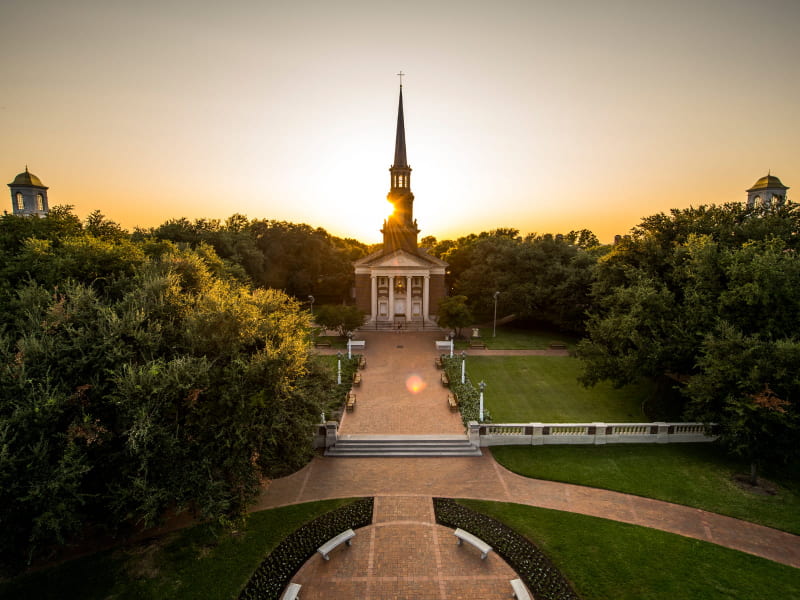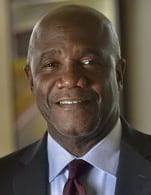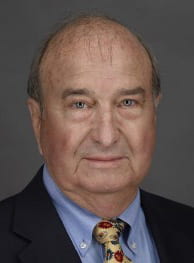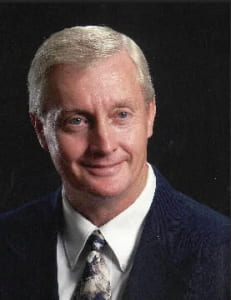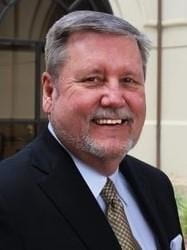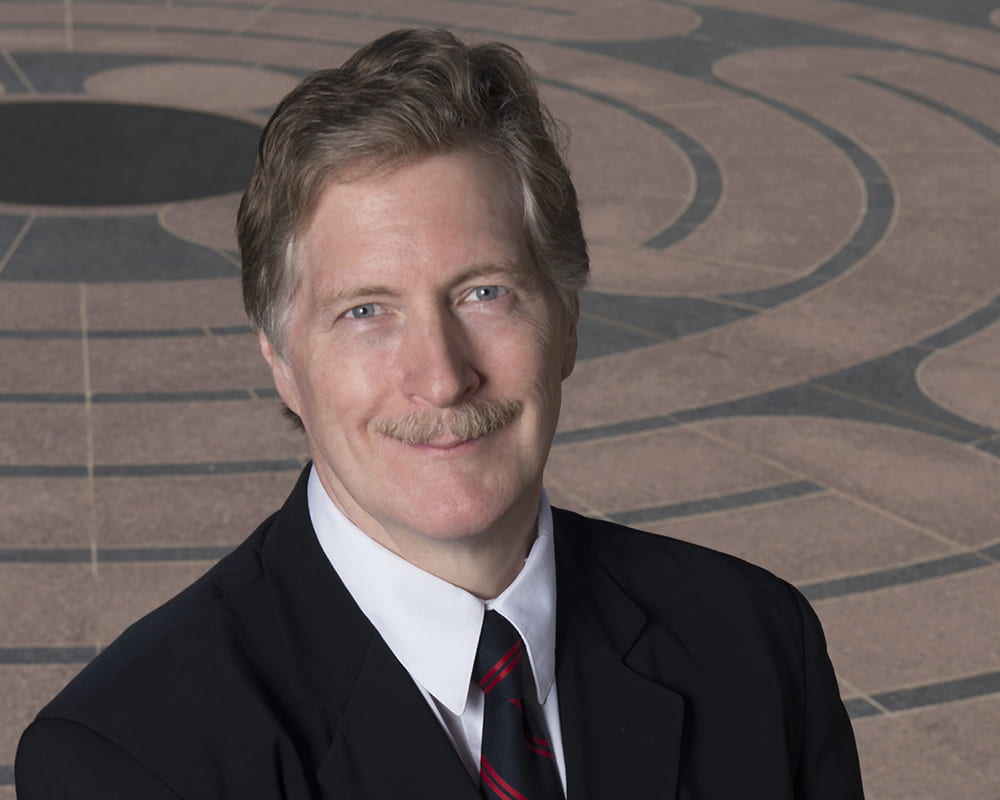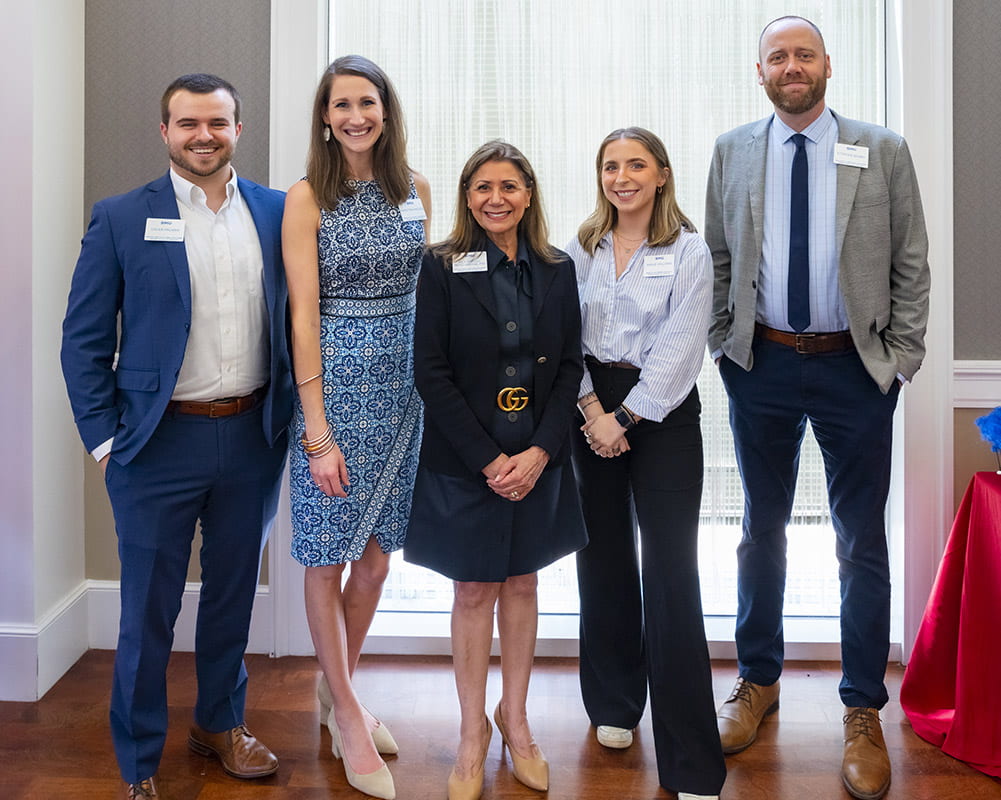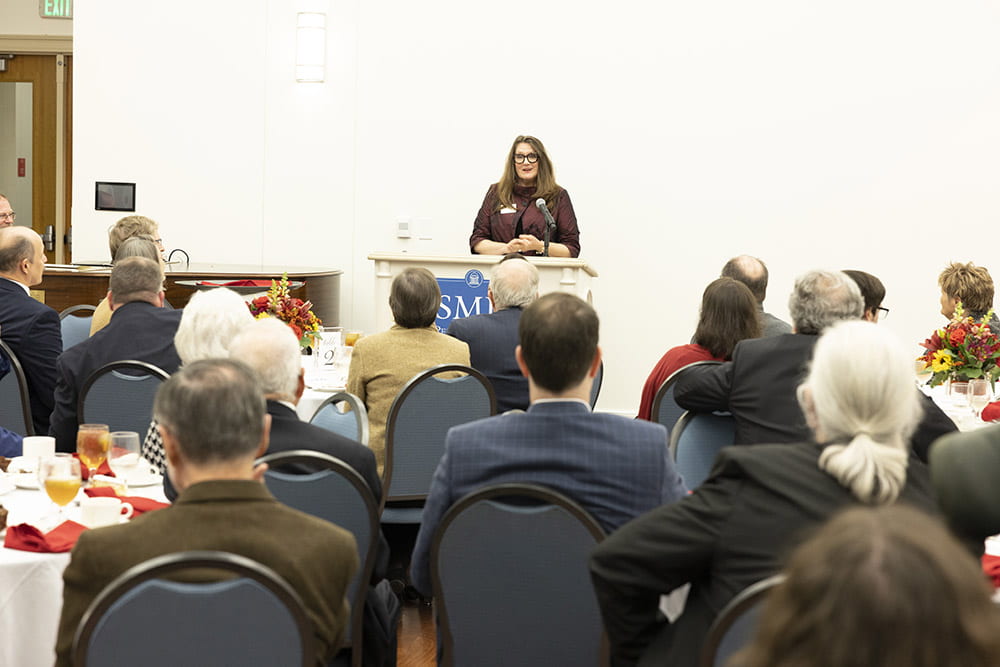Scientists know what steps are needed to address climate change – but faith groups could hold the key to mobilizing people around the globe to address the looming crisis.
With that in mind, representatives of four faith traditions – Buddhist, Jewish, Christian and Muslim – along with a scientist, shared their perspectives at “Confronting Our Global Ecological Crisis: Religion, Spirituality, and Science in Conversation,” a colloquium held November 1 in person at the Perkins campus, with participants joining via Zoom from Taiwan, the Dallas area and other parts of the United States.
The event was co-sponsored by Perkins School of Theology, the Museum of World Religions in Taipei, Taiwan, Faith Commons and the Global Family for Love & Peace.
Attendees were welcomed by the event’s convenor, Dr. Maris Reis Habito, who is International Program Director for the Museum of World Religions. She introduced the first speaker, Dharma Master Hsin Tao, who founded the Museum of World Religions in November 2001, with support from the Ling Jiou Mountain Buddhist Foundation. He is also abbot of Wu Sheng Monastery in Taiwan.
Speaking through a translator, the Dharma Master noted that the environment is encountering unprecedented threats. “Religions must be united to guard this ecological system,” he said. “Religions must bear this responsibility, and we should not have excuses not to take this responsibility.”
 Buddhists view the entire ecological system as an interconnected body shared by all sentient beings.
Buddhists view the entire ecological system as an interconnected body shared by all sentient beings.
“Spirituality is ecology, and ecology is spirituality; there is no opposition,” he said. “Religion can offer a vision toward a solution to try to resolve the ecological crisis. We hope to connect the power of all religions to guide people to return to their spirituality — to stop warfare, to reduce the desire of consumerism, and to stop the damage to the earth, allowing this earth to be peaceful and the ecology to be sustainable.”
Dr. Robert Hunt, Director of Global Theological Education and Perkins Professor of Christian Mission and Interreligious Relations, introduced the four panelists representing the perspectives of the Abrahamic traditions — Jewish, Christian and Muslim. Hunt noted, “All the world’s religions have worked on eco-theology or climate friendly theology for 30 or 40 years. It’s not a new topic at all, but it is a complicated topic. Science and religion have not always had an easy time getting along with each other. The intention this evening is to at least begin to talk about these in concert.”
Rev. Dr. George Mason, President of Faith Commons and Senior Pastor Emeritus of Wilshire Baptist Church in Dallas, noted that science and the Christian church haven’t always coexisted easily. But Christianity has always relied on wisdom — revelations that arise from nature and reality itself — as well as the Word.
Citing the story of Adam, the first human, formed with dust and animated by the spirit of God, he said, “The story is humankind is not and cannot be told apart from the natural world. We are spirit and ‘stuff,’ never one without the other. Our human future must also be tied to the future of the non-human world.”
In the Bible, Mason added, God’s judgment is often reflected in natural disasters, such as floods or brimstone. At the same time, “Nature proclaims the glory of God.”
Quoting theologian and bishop Lesslie Newbigin, Mason said, “Christianity provides the necessary groundwork for science … Nature is dependable and understandable in principle, and it is free and open.”
That opens the door to productive conversation and partnership between Christianity and science in addressing the world’s ills, such as climate change.
“Religion can and should give confidence to people to trust that truth is truth wherever and however it is found,” he said. “Science works by observation of creation. It is not a natural enemy of religion; it is a partner to it.”
 Rabbi Nancy Kasten, Chief Relationship Officer of Faith Commons, spoke on Jewish teachings about humanity’s relationship to nature. She cited a modern midrash of the third chapter of Genesis. In this retelling, Adam and Eve choose to leave the Garden of Eden to care for a struggling, shriveled tomato plant just outside of the garden. All the tomato plants inside the garden were tall and thriving. God told them the tomato plant was dead. They became angry with God and demanded to leave the Garden to take care of the tomato plant. God said they could never return if they did so. They left, watered the plant, and in a few days, the plant was full and green and laden with tomatoes. They were not sorry that they could not return.
Rabbi Nancy Kasten, Chief Relationship Officer of Faith Commons, spoke on Jewish teachings about humanity’s relationship to nature. She cited a modern midrash of the third chapter of Genesis. In this retelling, Adam and Eve choose to leave the Garden of Eden to care for a struggling, shriveled tomato plant just outside of the garden. All the tomato plants inside the garden were tall and thriving. God told them the tomato plant was dead. They became angry with God and demanded to leave the Garden to take care of the tomato plant. God said they could never return if they did so. They left, watered the plant, and in a few days, the plant was full and green and laden with tomatoes. They were not sorry that they could not return.
In this retelling, Kasten said, “Adam and Eve pursue meaning and purpose as God’s partners in maintaining and sustaining creation, instead of seeing the responsibility for tending for the earth as punishment for human curiosity.”
Humans’ role is to be earthly partners in healing and repairing the world, not masters of the universe, and that work is focused on the present.
“In Judaism we are told over and over again not to wait for God to save us,” she said. “We have to tend to our jobs in the here and now, in the time we are given on earth, and to do the best we can to help our world and to refrain from harming it.”
Kasten closed with a teaching of the ancient sages: “If you have a sapling in your hand, and someone should say to you, ‘The messiah has come,’ stay and complete the planting, and then go greet the Messiah.
“There’s nothing more important for Jews to do than to do what we can to save our planet … to be God’s partners in the continuing of work of creation.”
Imam Dr. Bilal Sert, who serves as a chaplain at SMU, was originally scheduled to present the Muslim perspective but was unable to attend due to health concerns. Hunt, who has studied Islam, shared one example of several statements related to climate change from Muslim groups.
Hunt read excerpts from the Islamic Declaration on Global Climate Change, developed at the 2015 Islamic International Islamic Climate Change Symposium in Istanbul. Ultimately the declaration was endorsed by Grand Muftis of several Islamic nations and by many prominent Islamic scholars. Islamic leaders called on Muslims to play an active role in combatting climate change and urged governments to work together.
“Our species, though selected to be a caretaker or steward (khalīfah) on the earth, has been the cause of such corruption and devastation on it that we are in danger ending life as we know it on our planet. This current rate of climate change cannot be sustained, and the earth’s fine equilibrium (mīzān) may soon be lost. As we humans are woven into the fabric of the natural world, its gifts are for us to savor. But the same fossil fuels that helped us achieve most of the prosperity we see today are the main cause of climate change. Excessive pollution from fossil fuels threatens to destroy the gifts bestowed on us by God – gifts such as a functioning climate, healthy air to breathe, regular seasons, and living oceans. But our attitude to these gifts has been short-sighted, and we have abused them. What will future generations say of us, who leave them a degraded planet as our legacy? How will we face our Lord and Creator?”
Dr. Eva Szalkai Csaky, Executive Director of Hunt Institute for Engineering and Humanity at SMU’s Lyle School of Engineering, provided a scientific perspective. She noted that the evidence about the reality of the environmental and climate crisis is convincing and overwhelming, and that science also offers a growing body of solutions. As an example, Csaky described research at SMU and – coincidentally, given Kasten’s story — tested on tomato plants for resilience against drought conditions.
“These kinds of innovations do exist, but are not yet widely applied and social sciences offer some important insights,” Csaky said.
She shared a story she had come across in her research: A freeze was forecast threatening the crops of many small farmers. Learning of the threat, the community’s priest intervened and successfully mobilized the entire community for an emergency harvest.
“The point is … that faith-based organizations uniquely have something that nobody else has,” she said. “They have an extensive network with nodes able to take timely action and mobilize people and resources: buildings, land, vehicles.” The same network can also be utilized to distribute knowledge and other resources.
“In addition, faith groups have established trust, which is important for both behavior change and collective action,” she said. “These attributes position faith groups to play an important role in tackling climate change.”
In responding to the panel discussion, Dharma Master Hsin Tao noted that war damages the earth, and the recent rising threat of nuclear warfare threatens disaster. Consumerism wastes resources. Cultivating a more loving and inclusive spirituality could help reverse those.
“We need to make the connections between the religions,” he said. “Otherwise, we cannot survive.”
 The portrait was made possible through the donations of members of the Perkins Executive Board, faculty and staff. Tennison’s portrait commissions have taken him across the United States and to England. His works include the official portraits of former Texas governors Rick Perry and Ann Richards, which hang in the State Capitol in Austin, portraits for the National Institutes of Health, Harvard University, Texas Christian University, Texas Instruments and Frito Lay, as well as many portraits for families. This is the second painting that he completed for Perkins – he painted the portrait of Dean William Lawrence when he retired in 2016 – and one of several that grace that SMU campus. He also painted portraits of James Zumberge, SMU’s seventh president from 1975 – 1980; L. Donald Shields, president from 1980 – 1986; and Kenneth Pye, SMU’s president from 1987-1994, as well as portraits of SMU donors Mr. & Mrs. David Miller and of Jerry Junkins, former Texas Instruments CEO and SMU trustee.
The portrait was made possible through the donations of members of the Perkins Executive Board, faculty and staff. Tennison’s portrait commissions have taken him across the United States and to England. His works include the official portraits of former Texas governors Rick Perry and Ann Richards, which hang in the State Capitol in Austin, portraits for the National Institutes of Health, Harvard University, Texas Christian University, Texas Instruments and Frito Lay, as well as many portraits for families. This is the second painting that he completed for Perkins – he painted the portrait of Dean William Lawrence when he retired in 2016 – and one of several that grace that SMU campus. He also painted portraits of James Zumberge, SMU’s seventh president from 1975 – 1980; L. Donald Shields, president from 1980 – 1986; and Kenneth Pye, SMU’s president from 1987-1994, as well as portraits of SMU donors Mr. & Mrs. David Miller and of Jerry Junkins, former Texas Instruments CEO and SMU trustee.